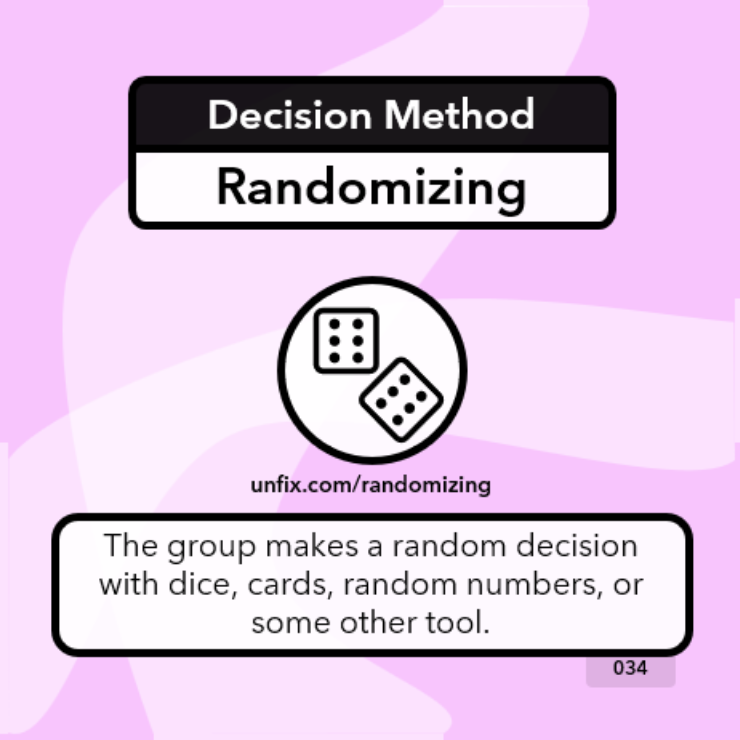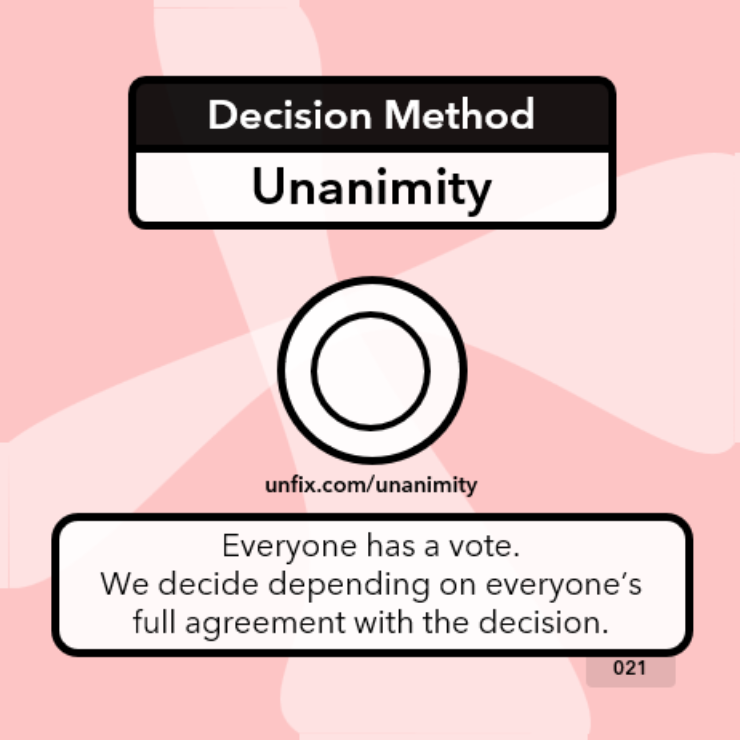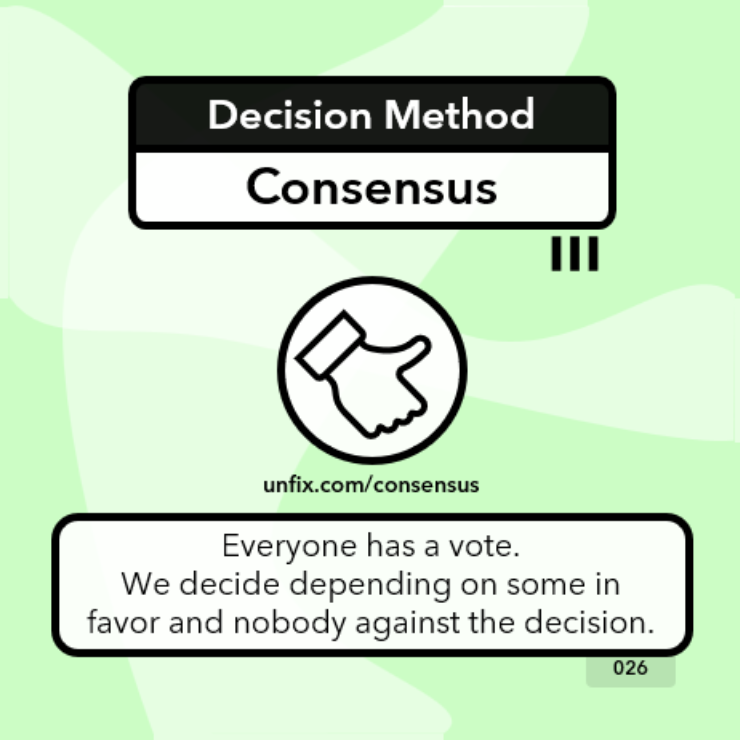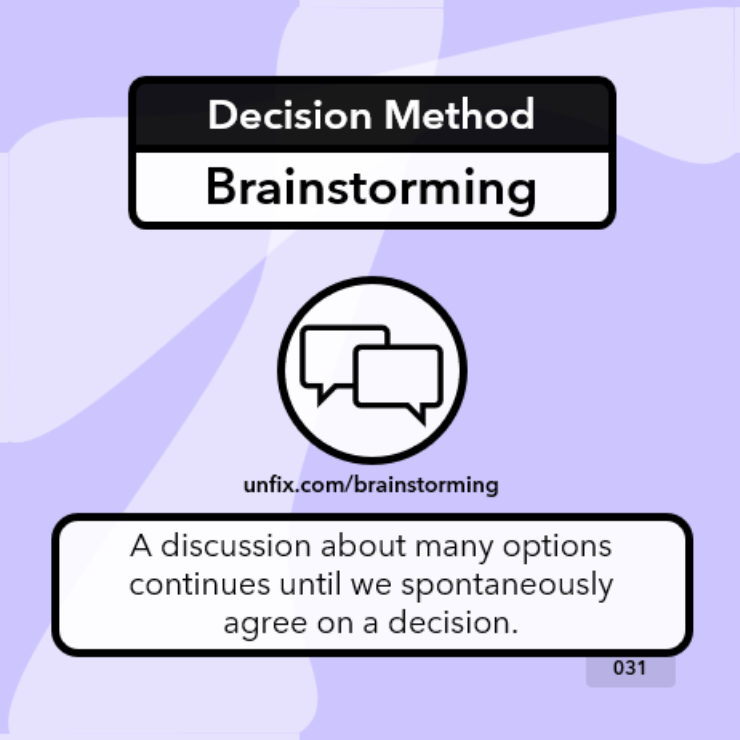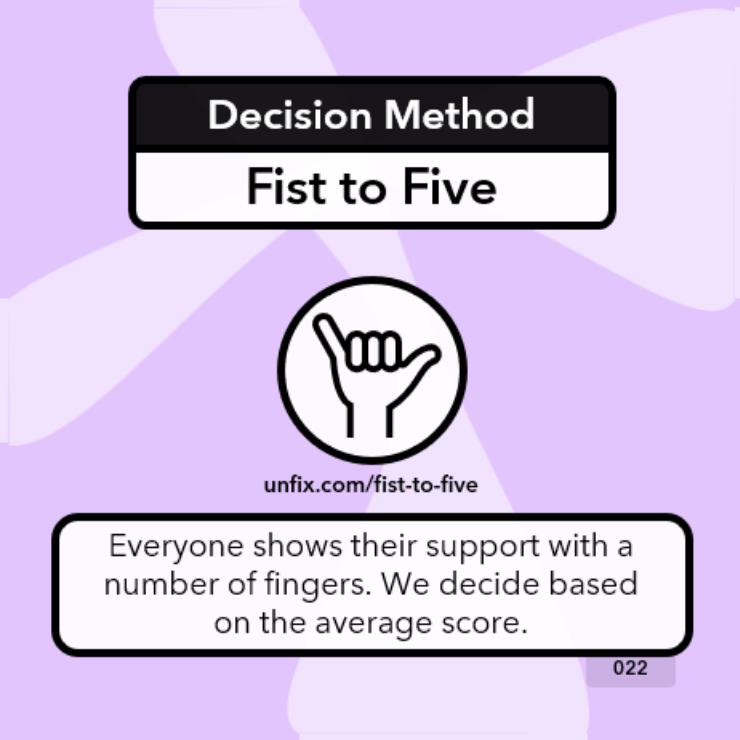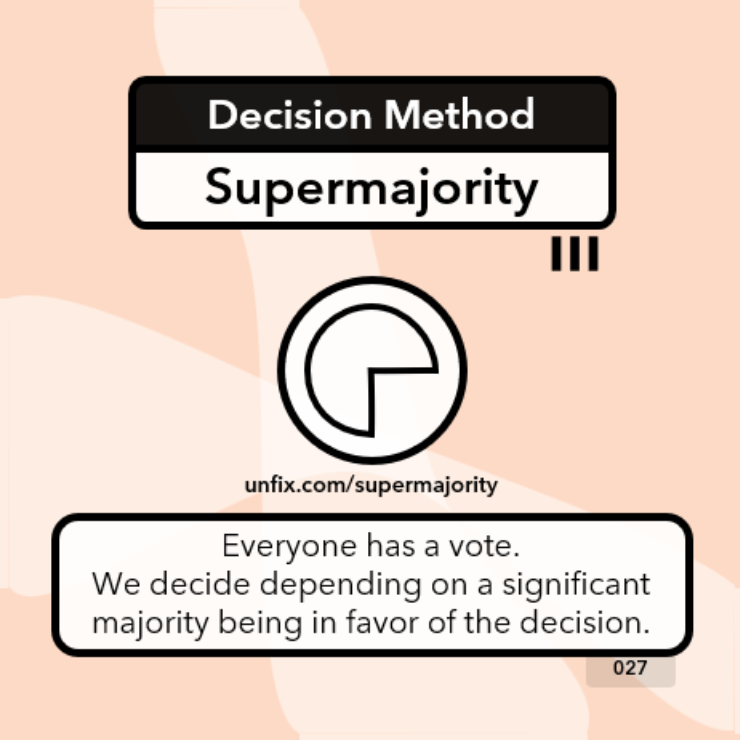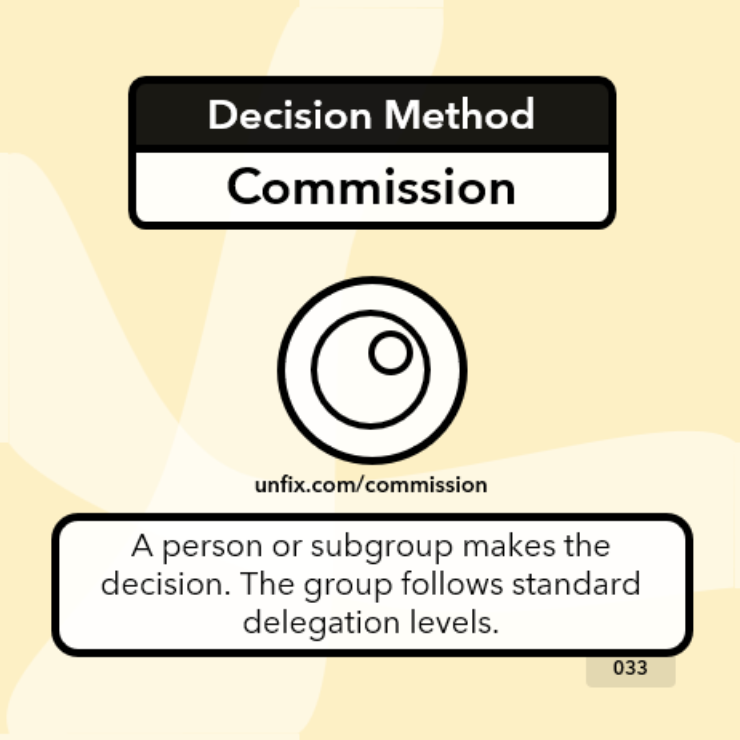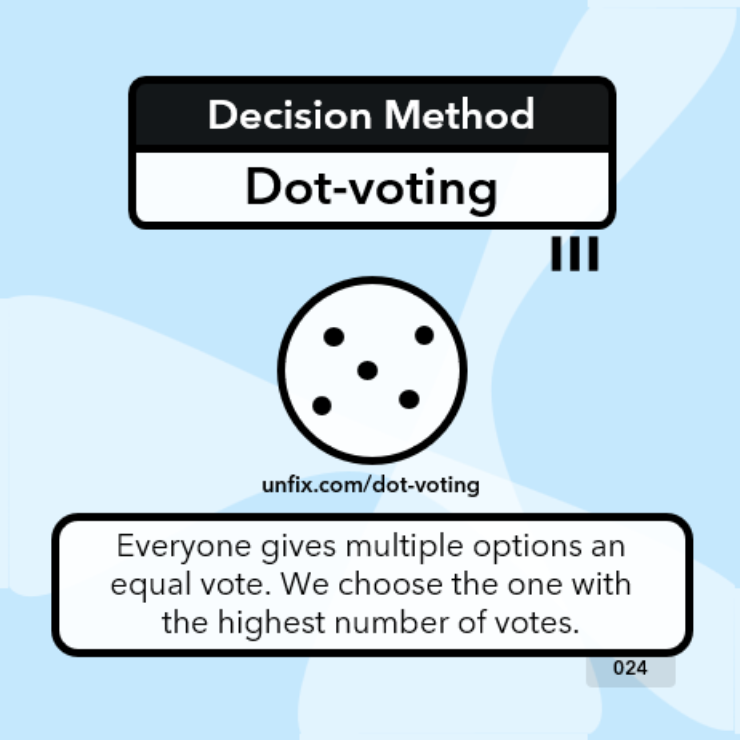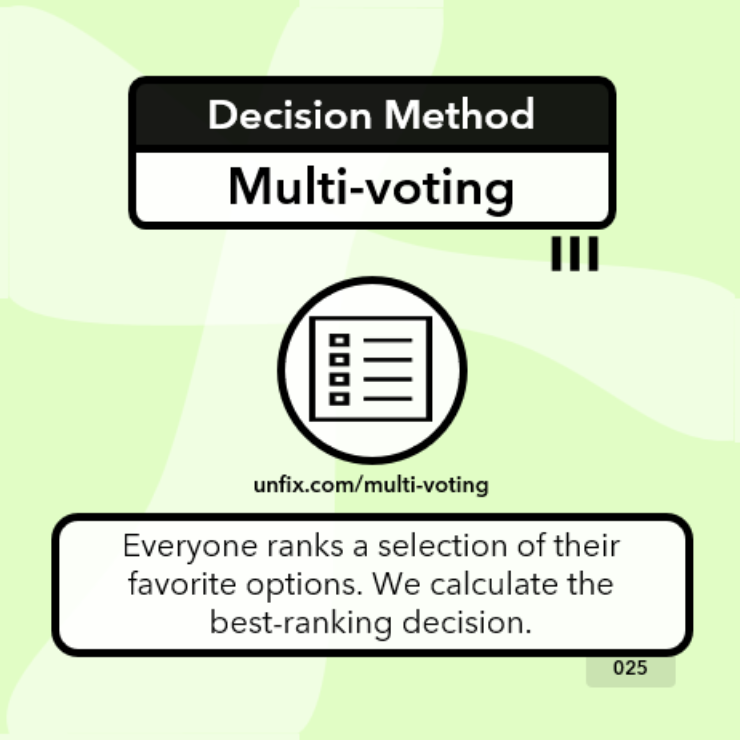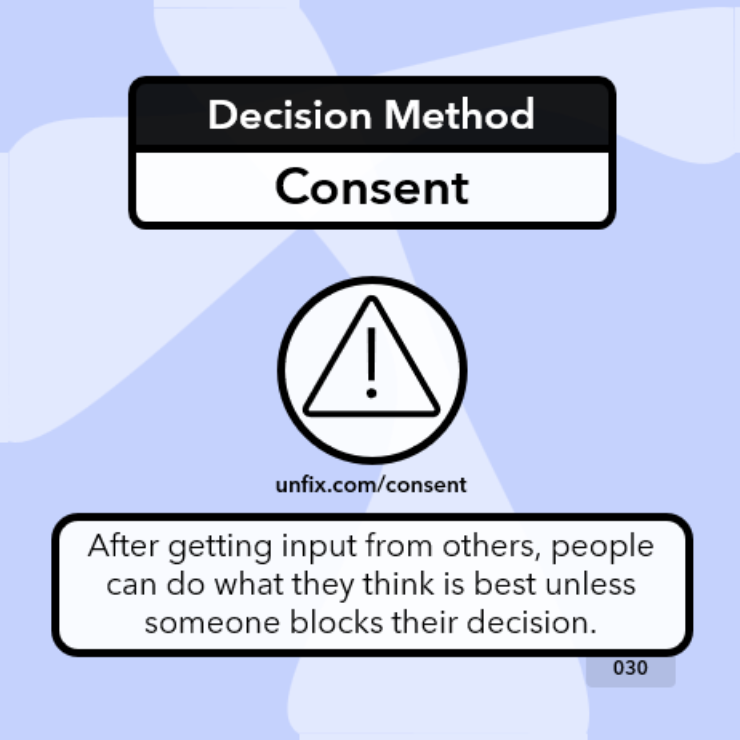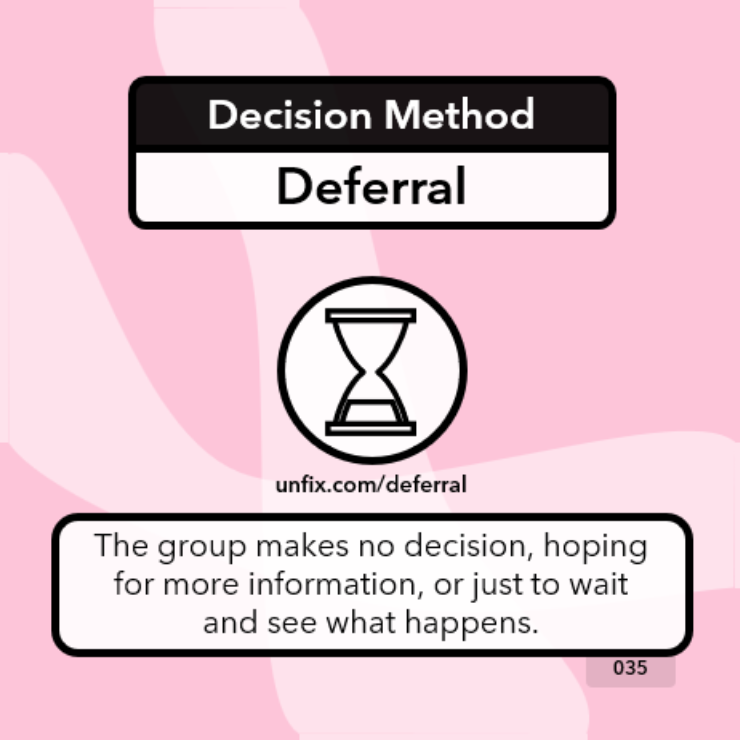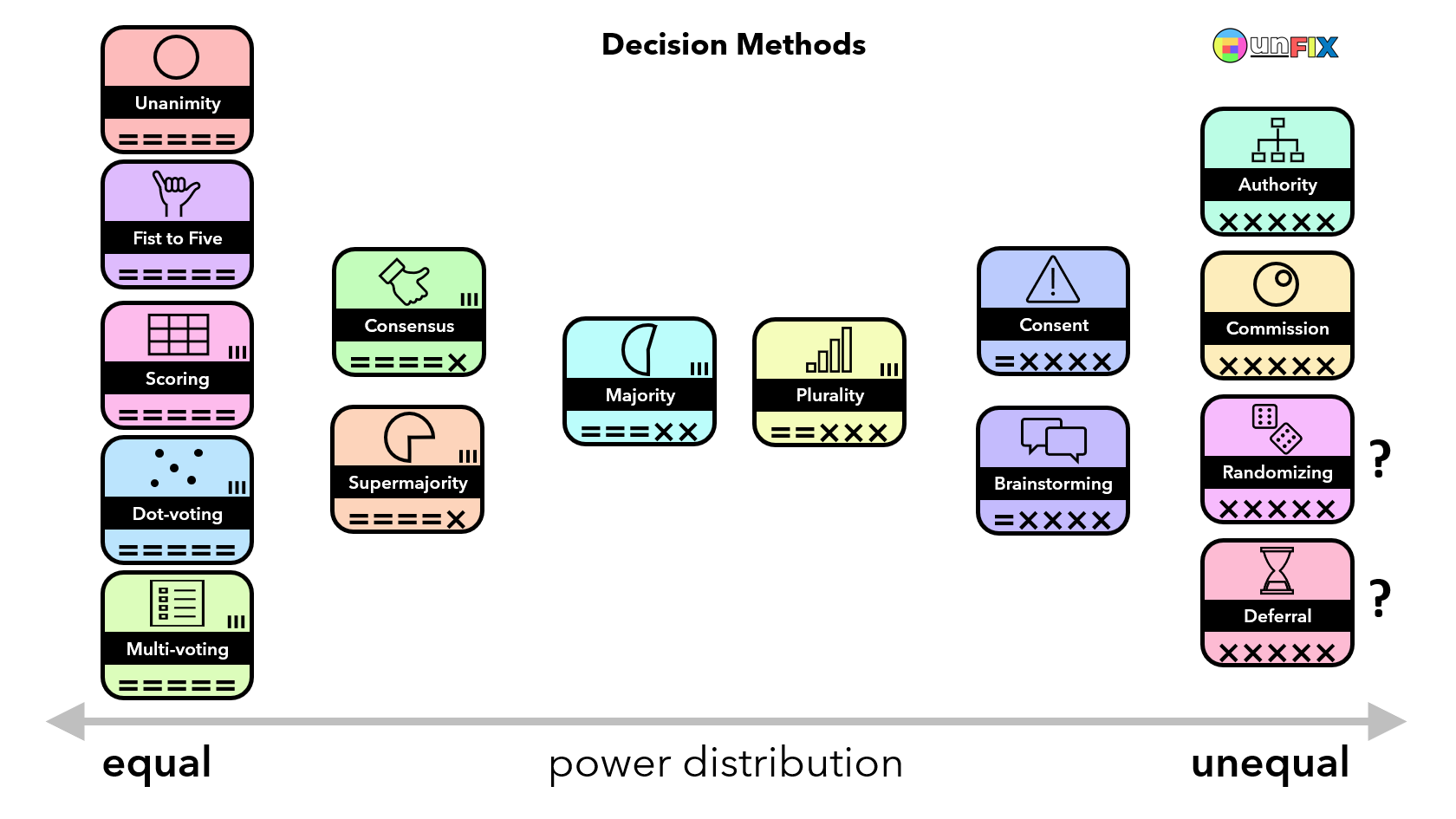
Randomizing
Decision Method
Randomizing means the group makes a random decision with dice, cards, random numbers, or some other tool.
Decision Methods: Unanimity • Fist to Five • Scoring • Dot-Voting • Multi-Voting • Consensus • Supermajority • Majority • Plurality • Consent • Brainstorming • Authority • Commission • Randomizing • Deferral
Purpose
Randomizing, in decision-making contexts, refers to the use of chance rather than deliberation to arrive at a choice. Instead of basing the decision on consensus, data, or authority, the group relies on randomness. Tools like dice, cards, or random number generators are employed to introduce an element of unpredictability. The outcome, determined purely by chance, is then accepted as the group's decision. This method can be particularly useful in situations where all options are seen as equally beneficial or when the group wishes to avoid potential biases or conflicts. While it lacks the precision of other methods, randomizing can expedite choices and introduce an unbiased element to the decision-making process.
Notes
Randomization is best suited for situations where fairness, equality, or a fresh perspective is desired, rather than for complex or critical decision-making scenarios.
Rules / Constraints
We have not yet defined rules or constraints for this decision method.




“Sometimes you make the right decision, sometimes you make the decision right.”
(Source: Phil McGraw)

